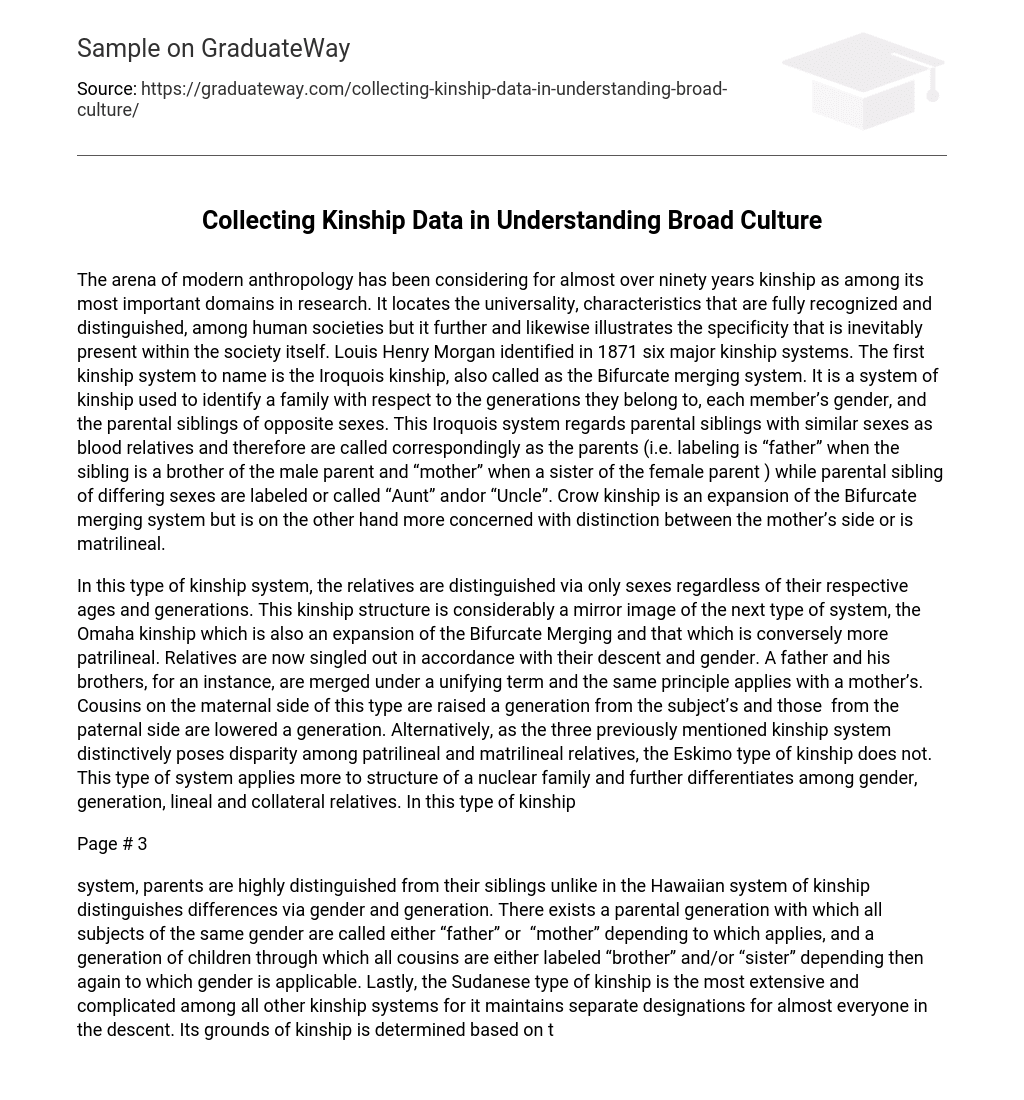The arena of modern anthropology has been considering for almost over ninety years kinship as among its most important domains in research. It locates the universality, characteristics that are fully recognized and distinguished, among human societies but it further and likewise illustrates the specificity that is inevitably present within the society itself. Louis Henry Morgan identified in 1871 six major kinship systems. The first kinship system to name is the Iroquois kinship, also called as the Bifurcate merging system. It is a system of kinship used to identify a family with respect to the generations they belong to, each member’s gender, and the parental siblings of opposite sexes. This Iroquois system regards parental siblings with similar sexes as blood relatives and therefore are called correspondingly as the parents (i.e. labeling is “father” when the sibling is a brother of the male parent and “mother” when a sister of the female parent ) while parental sibling of differing sexes are labeled or called “Aunt” andor “Uncle”. Crow kinship is an expansion of the Bifurcate merging system but is on the other hand more concerned with distinction between the mother’s side or is matrilineal.
In this type of kinship system, the relatives are distinguished via only sexes regardless of their respective ages and generations. This kinship structure is considerably a mirror image of the next type of system, the Omaha kinship which is also an expansion of the Bifurcate Merging and that which is conversely more patrilineal. Relatives are now singled out in accordance with their descent and gender. A father and his brothers, for an instance, are merged under a unifying term and the same principle applies with a mother’s. Cousins on the maternal side of this type are raised a generation from the subject’s and those from the paternal side are lowered a generation. Alternatively, as the three previously mentioned kinship system distinctively poses disparity among patrilineal and matrilineal relatives, the Eskimo type of kinship does not. This type of system applies more to structure of a nuclear family and further differentiates among gender, generation, lineal and collateral relatives. In this type of kinship
Page # 3
system, parents are highly distinguished from their siblings unlike in the Hawaiian system of kinship distinguishes differences via gender and generation. There exists a parental generation with which all subjects of the same gender are called either “father” or “mother” depending to which applies, and a generation of children through which all cousins are either labeled “brother” and/or “sister” depending then again to which gender is applicable. Lastly, the Sudanese type of kinship is the most extensive and complicated among all other kinship systems for it maintains separate designations for almost everyone in the descent. Its grounds of kinship is determined based on the distance, relation and gender of each of the relatives with respect to a certain subject belonging to the lineage of concern.
In general, the complexities and variations of delineating a family via different kinship systems help anthropologists understand a broader culture since any such prevailing type of kinship structure manifested and utilized in any society by and large portrays the significant characters defining the said and given cultural society.
Works Cited
Dousset, Laurent. ” Kinship: An Introduction (Part 4: Australian Aboriginal Kinship and Social Organization).” 2002.
H., MORGAN L. “Ancient Society.” (1965).





